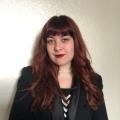QUAKERS at Swarthmoor Hall honoured the life of early Quakerism founder George Fox with a week of free events - 400 years after his birth.
The team in Ulverston welcomed special guests, volunteers and friends to a ceremony in the gardens to close the week of celebrations for the milestone occasion.
Ulverston's Deputy Mayor Shirley-Anne Wilson helped plant a commemorative winter flowering cherry in the gardens at Swarthmoor Hall, somewhere she has spent a lot of time over her years in Ulverston with friends and family. 
Cllr Wilson spoke warmly of the contribution that Quakers have made to the UK and the world plus helping people to understand their own faith and spirit.
READ MORE: Family raises 'phenomenal' amount of money in memory of beloved businessman
General Manager John Moffat, of Swarthmoor Hall, said: "It's been a brilliant week throwing the doors open again and welcoming locals and Quakers from across the country back to Swarthmoor. We chose this week to celebrate the Fox & Fell 400th Anniversary but also to showcase to everyone the beauty, peace and tranquillity of Swarthmoor Hall.
"We have really enjoyed sharing that again with visitors and look forward to reestablishing Swarthmoor Hall as part of the Ulverston community again.
"The week included a series of talks, family activities and Quaker worship, along with free entry to most of the Hall and gardens."
Born to a weaver and his wife in a small Leicestershire village in July 1624, George Fox toured Britain and travelled overseas to Barbados and North America, to spread the word.
He first visited Swarthmoor Hall in 1652 as he travelled across England. He stayed for long periods at the Hall and it became a place where early Quakers could meet, organise and plan preaching missions.
Hall resident Margaret Fell also became a very influential leader in the early Quaker movement and married George in 1669.
The Hall was always open to travelling Quakers and became a place of worship for the local community.






Comments: Our rules
We want our comments to be a lively and valuable part of our community - a place where readers can debate and engage with the most important local issues. The ability to comment on our stories is a privilege, not a right, however, and that privilege may be withdrawn if it is abused or misused.
Please report any comments that break our rules.
Read the rules here